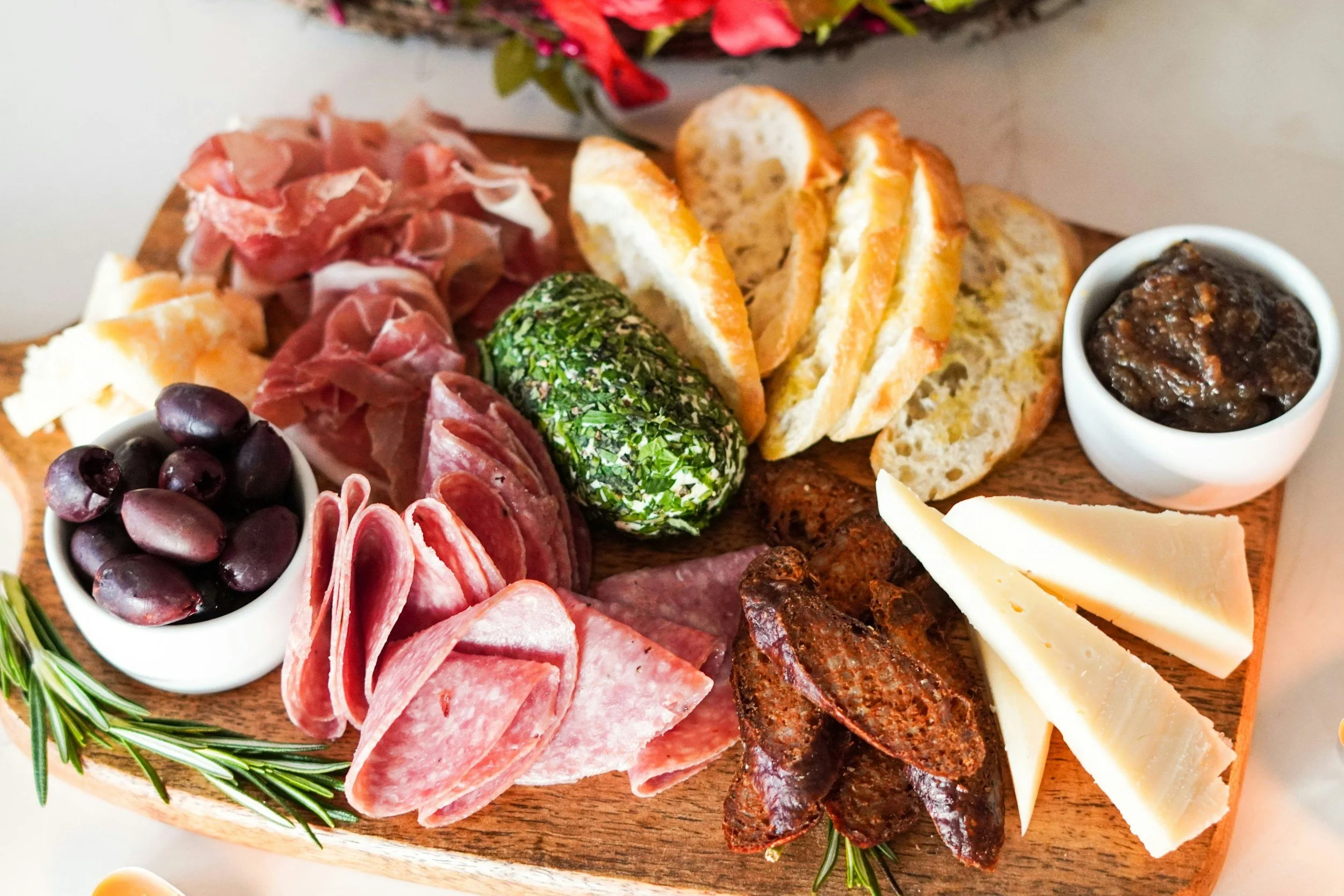Ultra Processed Foods: debunking Myths and resisting the Fear Mongering
Written by: Allyson Inez Ford, MA, LPCC
Why This Conversation Matters
There’s been a noticeable rise in panic around “ultra-processed foods” lately—especially in parenting spaces, wellness communities, and, not surprisingly, the eating disorder field. Once again, we’re watching conversations about food spiral into shame, rigidity, and division.
As a therapist who works with eating disorders, I’ve seen this fear take hold in real time: clients second-guessing every bite, parents afraid to pack granola bars in lunchboxes, and recovery spaces getting flooded with moral judgments about “clean” versus “toxic” food. So let’s pause and look at what the research actually says, and what this fear is really rooted in.
What Even Is ‘Ultra-Processed’?
Most people are surprised to learn that almost everything we eat is technically processed in some way.
Here’s a simple breakdown:
Unprocessed foods are in their raw, natural state—like fruits, vegetables, meat, milk, or grains straight from the source.
Processed foods have been altered in basic ways like cooking, freezing, or canning (e.g., roasted peanuts, frozen veggies, canned beans).
Ultra-processed foods (UPFs) are industrially formulated—think snack foods, instant meals, protein powders, flavored yogurts, or even some nut butters.
The term comes from the NOVA classification system, which was designed to look at population-level dietary trends. It was not meant to dictate what individuals should or shouldn’t eat. And much like BMI, it's often misused and misinterpreted.
Why We Process Food in the First Place
For starters, most of us don’t have the time or resources to grow, harvest, and prepare every meal from scratch. Processing exists for a reason:
To kill bacteria and prevent foodborne illness (pasteurization, for example)
To extend shelf life so food doesn’t spoil quickly
To make food more accessible and require less time to prepare
To enhance taste, texture, or digestibility
In other words, processing food isn’t a modern evil. Processing food is a part of how many people safely, affordably, and consistently access nutrition.
Myth #1: Ultra-Processed Foods Are Automatically Unhealthy
Fact: there is no universal definition of what “healthy” even means.
Health is personal and context-specific. It depends on your unique needs, genetics, access to resources, culture, disability status, and more (ie. your nutrition needs if you are malnourished will look a lot different than someone who is not). Labeling certain foods as “bad” or “toxic” often stems from healthism—the belief that people have a moral obligation to pursue health at all costs, and that their worth is tied to their health status.
Yes, some UPFs contain more added sugar or sodium. But that doesn’t automatically make them harmful. What matters more is variety, consistency, and meeting your body’s needs. And let’s not forget: many marginalized communities rely on shelf-stable, processed options because they’re what’s available. Demonizing UPFs often ends up shaming working-class, disabled, and BIPOC folks under the guise of wellness. If there is no discussion on resolving economic disparities, I am highly skeptical of anyone pushing ideas of “health.”
Myth #2: UPFs Cause Eating Disorders
Nope. That’s not how eating disorders work.
Eating disorders are complex mental health conditions that develop due to a mix of genetic, psychological, relational, and systemic factors. There is no direct link between eating ultra-processed foods and developing an ED. What we do know increases ED risk? Restriction. Dieting. Weight stigma. Food shame.
If anything, eliminating UPFs during recovery can make things harder. It fuels rigidity, black-and-white thinking, and might make food feel even more threatening.
Myth #3: UPFs Are Addictive
This is a claim that’s gained a lot of traction, but the science doesn’t back it up.
A 2022 literature review found no solid evidence that food (or sugar in particular) is addictive in the way psychoative substances are. The animal studies often cited showed “addiction-like” behavior only when the animals were given intermittent access to sugar. Translation? It's not the sugar—it’s the restriction that creates those intense cravings and binges.
That tracks with what we see in ED recovery too: the more a food is off-limits, the more it occupies your brain. You feel obsessed with the thought of food and it feels like your appetite is insatiable. When you are nourished properly and consistently (and I mean years) you won’t feel so obsessed or ‘addicted.’
A Few More Things to Keep in Mind
The NOVA system was meant for public health research, not personal food policing.
Studies linking UPFs to health risks often report relative risk increases (e.g., from 2% to 2.6%), which really isn’t clinically meaningful- but does allow marketing agencies some “truth” (albeit verrrry arguable) to claims that link UPF consumption to health.
Blanket fear-based statements around UPFs reinforces classism, ableism, and racism- especially when we criticize foods most often eaten by people with limited access to fresh, local, organic ingredients.
In Recovery, Fear of Processed Food Is a Barrier
If you’re in recovery from an eating disorder, labeling foods as “safe” or “unsafe” can derail progress. Ultra-processed foods might actually support recovery by making meals easier to access, quicker to prepare, or more enjoyable to eat. Especially on days when cooking a full meal just isn’t realistic- which is the reality for many working class, neurodivergent and disabled people. It’s also perfectly okay if cooking just isn’t your thing and you’d rather eat a frozen meal.
You don’t have to justify eating a snack with a long ingredient list. Any kind of nourishment is valid, and fed is always best.
Final Thoughts
The fear-mongering around ultra-processed foods is often louder than the actual science behind it. These conversations rarely consider structural barriers or mental health—and often end up reinforcing harmful messages about food, body image, and morality.
Let’s move away from obsession and toward a more compassionate, inclusive approach to food. One that centers lived experience, accessibility, and enough-ness.
Want to Read or Listen More?
Books
The Wellness Trap by Christy Harrison, MPH, RD
Articles
Vasiliu, O. (2022). Food Addiction – A Literature Review. Frontiers in Psychiatry. https://doi.org/10.3389/fpsyt.2021.824936
Patton, G. C., et al. (1999). Onset of adolescent eating disorders: population-based cohort study. BMJ. https://doi.org/10.1136/bmj.318.7186.765
Laura Thomas, PhD: Substack article
Podcasts
Burnt Toast with Virginia Sole-Smith (ep. 155)
Making It Awkward with Jessica Wilson
Full Plate Podcast with Abbie Attwood
If you are struggling with your relationship to food or even suspect you have an Eating Disorder, my team is here to help you. Please do not hesitate to reach out to us to inquire on how we can support you. If we aren’t your match- we will direct you to someone who is!


